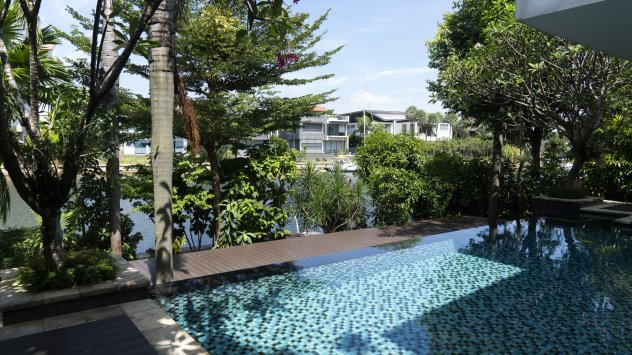
by Pavel Bandilov
Mario Puzo says that the power (according to the modern society’s standarts) is nothing more than money and real estates. And according to Vanilla Ice “even on a bad market, location, location and location again is the way to buy and sell properties”. At first, between the two of them there is nothing in common – except their opinion about real estates. But we should not be surprised: the attitude towards this kind of asset is similar of over 99% of the people. The investment in it is not as volatile as the shares, currencies or raw materials. It offers profitability under the form of a loan and is perceived by the investors as an asset type asylum.
An old real estate proverb says that the best moment to buy a real estate is always years ago and as if it rings especially true today. But is it really so?
During the current year, real estate market data show a loss of momentum and the first signs of cooling are already visible. According to Registry agency data, the real estate market activity starts to decrease. During the first quarter of the year in the in the country, 44,100 purchases and sales were made, which is 10.80% more compared to the same period of 2021. In the second quarter, there were 48,800 transactions, but their growth was only 4.31%, compared to April – June 2021. In total, for the half-year, the number of transactions was just over 112500. The increase compared to 2021 is about 7%, or more precisely 7401 deals. The data covers sales and purchases of buildings, common parts of buildings and land registered in all 113 registry offices throughout the country.
In Sofia, the number of transactions practically stops growing: the increase compared to the second quarter of 2021 is less than a percentage – 0.28%. On an annual basis for the six months, the growth in the city of 3.5% is below the average for the country. For comparison, in the first quarter, an increase of 8.7% was registered in the capital. The data from the agency shows a decrease in the number of transactions, which means that the economic conditions, as well as the price of the offered properties, are already affecting the demand.
In Sofia, the number of deals practically stops to grow: the increase compared to the second quarter of 2021 is below a percentage – 0.28%. On an annual basis for the six months, the growth in the city of 3.5% is below the average for the country. For comparison, in the first quarter, an increase of 8.7% was registered in the capital. The data from the agency shows a decrease in the number of transactions, which means that the economic conditions, as well as the price of the offered properties, are already affecting the demand.
According to the latest Colliers report for the market of residential areas in the high and medium-high segment in Sofia shows that the supply of this type of property in the first half of 2022 registered a growth of 4%. The majority of new housing units appear on the property market in the first three months of the year. The latter saw a slowdown in both supply and demand – as a result of geopolitical and economic challenges.
With projects under construction, supply and sales are also held back. Among the main reasons is the constantly changing prices of the construction materials and supply chain mistakes. Despite that, for the first since the end of 2020, there is an increase in projects under construction, which reach 3,800 housing units. Vacancies are holding steady at a low of 2% of total volume.
In the last few months we noticed that the real estate demand equaled the supply, which is a sign for a peak in the market and that in the coming months it can turn its course in the matter of price levels and most probably number of deals.
Calming of the market in terms of sales volume is also observed in other major cities. A slowdown in the growth rate is also observed in property transactions along the Black Sea, but to a lesser extent.
Lets also take a look at the credit market as we keep in mind that not a small part of the deals are financed by mortgage loans and correlation between the interest rate on the mortgage loans and the demand for real estates is high.
According to BNB data in the end of the second quarter the number of credits of households and firms that serve them decrease on an annual basis with 0,8% reaching 2.799 million pieces. Their amount increased on an annual basis by 14.8%, reaching BGN 31.111 billion. At the end of June, compared to the end of March, the number of these loans increased by 0.5%, and their size – by 4.5%.
As of June 30, the total amount of loans is dominated by those over BGN 100,000 to BGN 250,000 with a share of 24.6%. We should not forget that the combination of increasing interest rate growth against the background of increasing inflation cause a negative influence on the credit market so it is expected the demand for loans to drop.
The expected growth of interest rates, together with the decreasing purchasing power as a result of inflation is expected to cool the demand for credits. The combination with the current price levels of real estates will have a negative influence on the mortgage loans market.
But is the cooling in the sector solely due to our low purchasing power and rising inflation or is this a global trend?
U.S. new home listings versus sales in June were at their highest level since 2010. And through early July, buyer visits to homebuilder websites and sales offices plunged to their lowest level for the month since 2012, according to a survey of homebuilder attitudes by the National Association of Home Builders. The backlog of unsold new homes across the states points to a broader shift that is wreaking havoc on the market.
When the perspectives for the economy in the next months are dark, the construction companies reduce the newly started residential buildings, trying to avoid the risk to end up with too many completed but empty homes. They are also applying for fewer building permits, with single-family homes falling to a two-year low in June.
The situation on the Island is not more different. Data show that housing prices in the country has dropped for the first time in a year this July. The decrease is 0,1% by which the medium housing price in Great Britain dropped to 356 100 dollars according to the Halifax statistics. Despite that the housing value remains 11,8% higher compared to a year earlier, the growth pace started to slow down. According to an analysis of Bank of England, the increase of the main interest will increase the monthly mortgage payments for first-time home buyers up to 40% - which is also a negative factor for the real estate sector.
We notice similar signals from other European countries and in Germany the real estate concern Adler fights for its salvation. China's property crisis has grown over the past year, starting with liquidity problems at Evergrande, one of the country's biggest property groups. It has dragged down investors, funds and banks, and forced authorities in Beijing to temper their growth ambitions and begin policing the sector.
The picture of the Bulgarian situation is not more different than the one of the global economy. And yet, will the real estates prices drop and to what extent is a question asked by both prospective buyers and those who are already owners or hoping for a future sale.
Unfortunately nobody has crystal ball in front of themselves so we should not forget that people are not perfect creatures and we often confuse wanting with reality. Behind each trend on the markets there are real reasons for it to happen.
Except demand and supply, among the main factors are the inflation level, unemployment and political environment and of course, the interest rate. When the access to financing is easy and cheap, we witness growth of assets. The proof of this are the years after 2008 when the central bankers flooded the markets with cheap capital that led to unprecedented growth in the capital markets, real estate, boom in certain sectors of the economy, the appearance of numerous start-ups, and why not extravagant spending by a number of countries. For better or for worse, this period ends and the emergence of inflation forced the central banks to increase the interest rates with big steps, scaring the investors.
Product and service price increase reduces the purchasing power of the population and also has a negative influence on the consumption and investments. The rise in the prices of construction materials further complicates transactions in the sector by raising the production costs of builders and, accordingly, the asking price.
The complicated political environment such as the war in Ukraine and the tension between China and USA also negatively influences our desire to take risk which cools the investments.
These few factors have a negative pressure on the real estates, as well as the capital markets, so at this stage the only conclusion regarding the future ahead of the sector is that the expected trend is negative and we have most likely already witnessed a price peak.
Any prediction of where property prices will go and where the bottom will be for the market borders on fantasy. Old stock exchange proverb says that a bottom and a top are not easy to reach only counting on luck, so maybe we should remember this more often.
Will the real estates prices drop and to what extent is a question asked by both prospective buyers and those who are already owners or hoping for a future sale.



